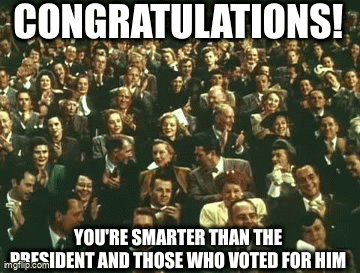Tariffs aren't charged to the country or corporation the product came from. They are charged to the importer. It's literally a fee at customs to release the item into the country. Some companies take care of this for you if you're buying personally from overseas. Some do not and it is more transparent
Let's use alcohol as an example because I like scotch and some stores in the UK do and some don't. The ones that take care of customs for me would just show me a price of 68.75£ along with a warning that the exchange rate may cause a minor shift in price. The ones that do not would show a price of 55£ along with a warning about the exchange rate and that I need to deal with customs. Customs sends me a letter when the bottles arrive in the country saying I need to pay 17.26 US Dollars (about 13.75 in British money) to clear customs.
So that's why Trump's Tariffs are actually a sales tax on Americans. But why are countries going to retaliate?
That's because industry owners in affected countries are going to complain to their government about our government making their products more expensive in our country. It's okay if you need to read that a couple times, I did when I was learning about international economics. This is going to affect the trade balance between the two countries if they don't retaliate. It will make American goods cheaper and thus give them an advantage on the world stage because they always have a protected market at home to profit from.
This is especially disastrous when the countries are dissimilar in size. Like the US and UK. Take two producers of Soybeans. In the US they have twice the available production capacity (arable fields) and a protected market six times the size of the UK by population. So if the UK producer can only sell at market rate to 60 million people and the American producer can sell at market rate to 330 million people, the American producer can make more money before we even talk about international markets. So the American company has more money than the UK company to operate internationally.
Between the two countries specifically this means that without retaliatory tariffs the American company could even buyout or bankrupt the British company and replace it in British stores, without hiring British workers. That's an extremely important point in an economic system based on selling your labor. And why the workers will also demand retaliation.
I could keep going, there's a lot that goes into this but at the end of the day everyone's economy gets hurt. And the biggest thing to know is that there are two giant weak points in a trade war. Being a manufacturing country that exports a lot of stuff, (Mexico), and being a food importer, (USA). You'll notice I didn't mention China. That's because they import food mostly from Africa and export goods to Russia, Europe, and the rest of Asia. Our tariffs are not going to meaningfully hurt them. As far as Mexico, you may be thinking we'll just tariff their manufactured goods, but not their food. Well, let me introduce you to Exit Tariffs. They can make their food more expensive only in the US as a retaliation. Is that a bit self harming? Yeah, but what's worse? Less income or Less food?
And that's why Trump can't possibly win his Trade War.
